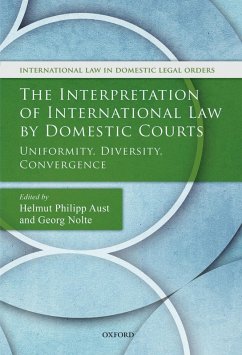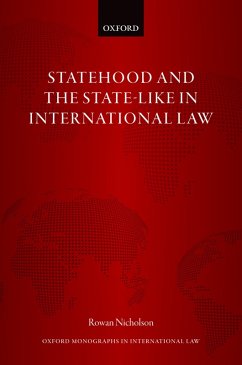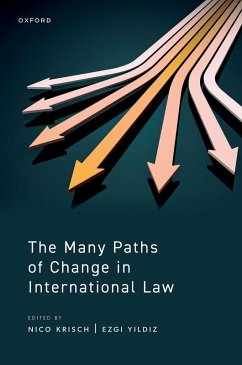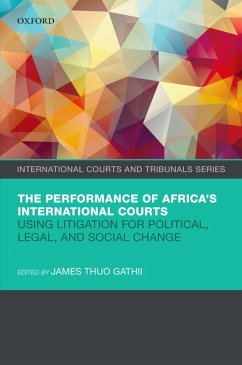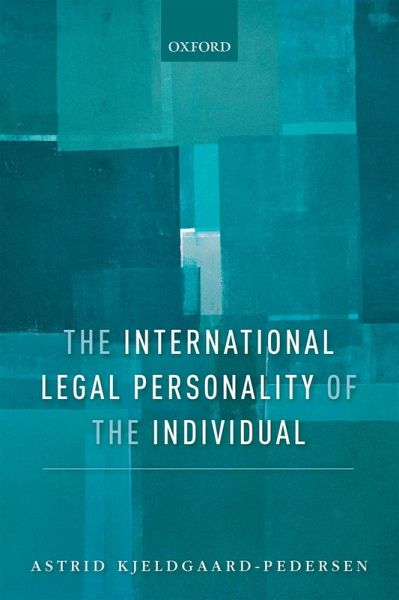
The International Legal Personality of the Individual (eBook, ePUB)
Versandkostenfrei!
Sofort per Download lieferbar
34,95 €
inkl. MwSt.
Weitere Ausgaben:

PAYBACK Punkte
17 °P sammeln!
This is the first monograph to scrutinize the relationship between the concept of international legal personality as a theoretical construct and the position of the ultimate subject, the individual, as a matter of positive international law. By testing the four main theoretical conceptions of international legal personality against historical and existing norms of positive international law that regulate the conduct of individuals, the book argues that the common narrative in contemporary scholarship about the development of the role of the individual in the international legal system is flawe...
This is the first monograph to scrutinize the relationship between the concept of international legal personality as a theoretical construct and the position of the ultimate subject, the individual, as a matter of positive international law. By testing the four main theoretical conceptions of international legal personality against historical and existing norms of positive international law that regulate the conduct of individuals, the book argues that the common narrative in contemporary scholarship about the development of the role of the individual in the international legal system is flawed. Contrary to conventional wisdom, international law did not apply to states alone until World War II, only to transform during the second half of the 20th century so as to include individuals as its subjects. Rather, the answer to the question of individual rights and obligations under international law is - and always was - strictly empirical. It follows, of course, that the entities governed by a particular norm tell us nothing about the legal system to which that norm belongs. Instead, the distinction between international law and national law turns exclusively on whether the source of the norm in question is international or national in kind. Against the background of these insights, the book shows how present-day international lawyers continue to allow an idea, which was never more than a scholarly invention of the 19th century, to influence the interpretation and application of international law. This state of affairs has significant real-world ramifications as international legal rights and obligations of individuals (and other non-state entities) are frequently applied more restrictively than interpretation without presumptions regarding 'personality' would merit.
Dieser Download kann aus rechtlichen Gründen nur mit Rechnungsadresse in A, B, BG, CY, CZ, D, DK, EW, E, FIN, F, GR, HR, H, IRL, I, LT, L, LR, M, NL, PL, P, R, S, SLO, SK ausgeliefert werden.




